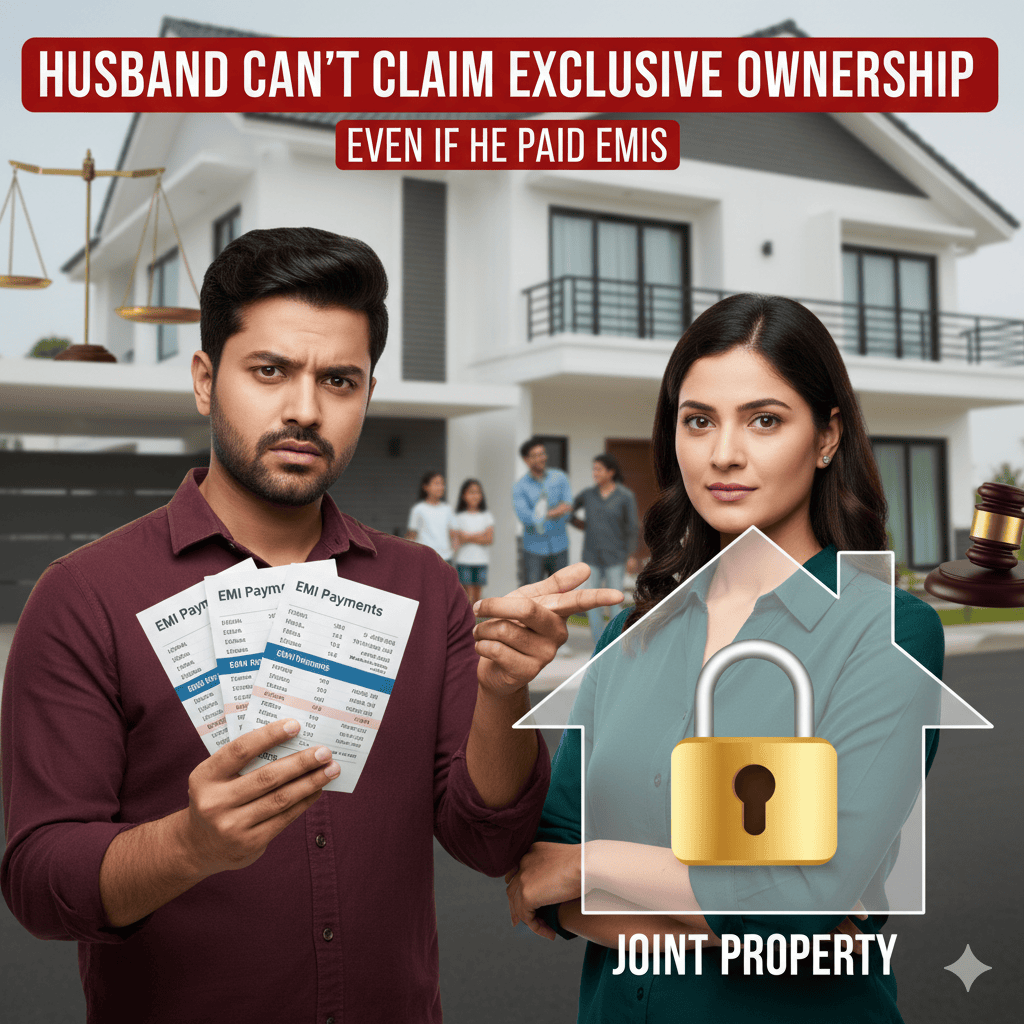Buying a house together is a big milestone for any couple. Very often, both husband and wife become joint owners of the property, though in many cases, the EMIs are paid only by one spouse, usually the husband. A common question that arises later is:
👉 “Since I alone paid all the EMIs, can I claim the property fully in my name?”
The answer is No. Let’s break this down in simple words.

1. What Does Joint Ownership Mean?
When a property is registered in the joint names of husband and wife, the law assumes that both have ownership rights, regardless of who pays the EMIs.
The sale deed is the ultimate proof of ownership.
If both names are mentioned, then both are co-owners.
This means the wife has an equal legal right in the property.
2. Does Paying EMIs Alone Give Exclusive Ownership?
No. Courts have repeatedly held that:
Just because the husband has paid the EMIs, he cannot deny his wife’s share.
Payment of loan installments is considered a financial arrangement, not a proof of exclusive ownership.
The law treats the property as belonging to both, since both names are on the registered deed.
3. Why This Rule?
Property law looks at title (ownership documents), not who paid.
Many times, EMIs are paid from a joint family pool, not just the husband’s independent money.
Registration of both names also protects the wife’s financial security.
4. What Happens in Case of Divorce or Dispute?
If the couple separates:
The property will generally be divided or sold, and both will get their share.
Even if the husband claims “I paid everything,” the wife’s ownership rights remain.
However, in some cases, courts may consider EMI payments while deciding on final settlement, but ownership rights do not vanish.
5. Key Takeaway for Couples
If you register property in joint names, both are legal owners.
Payment of EMIs alone does not make one spouse the sole owner.
Think carefully before deciding whose name(s) to put on the sale deed, because ownership flows from documents, not from EMI payments.
✅ In Simple Words:
If both husband and wife are co-owners on paper, then both are co-owners in law. The husband cannot later say, “I paid for it, so it’s mine.

